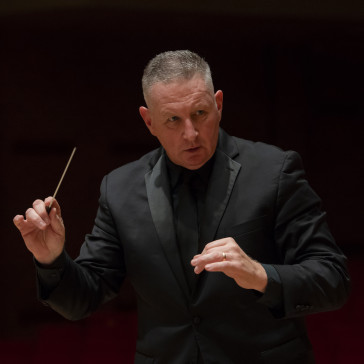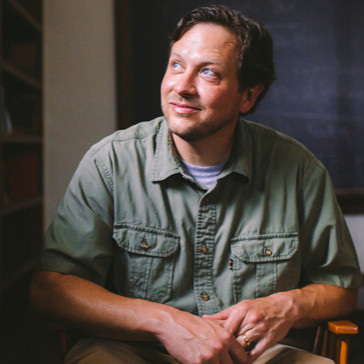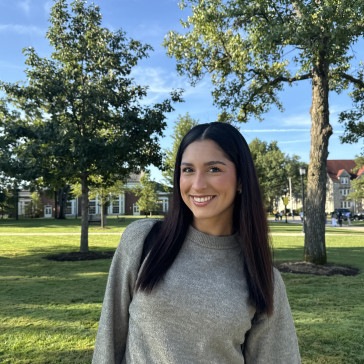Empowering Students
Since I recognize that each student brings a unique dimension to the collective, it is problematic to name a favorite thing about DePauw students. Students embed their profound quest for self-discovery into the fabric of DePauw life. The bonds students establish create narratives that contain profound capacity for their DePauw experience and beyond. I am always excited when a student articulates an idea that shifts the geography of our consciousness.
DePauw’s motto, Decus lumenque reipublicae collegium (The college is the splendor and light of the common good.) orients my attitude and style of working with students. Grounded in the liberal arts tradition, a DePauw education exposes and empowers students to deal with uncertainty and embrace radical possibility. Inevitably, DePauw’s education points to growth, self-realization and transformation. Its faculty consists of professors who are passionate about teaching, accessible and for whom the life of the mind is fundamental. In the longue durée, they prepare students for careers and lives of meaningful and rewarding service. Consequently, students are challenged to address life’s perennial questions, engage the past, interpret the present, unearth invisible non-present frameworks that structure the existential conditions under which we live, and imagine the future. In this process, they discover the role of citizens, writers, artists, philosophers, poets, professionals, teachers and humankind in maintaining and sustaining the world.
Ultimately, I want students to broaden their awareness, horizons, sense of global consciousness and shared humanity. We work as a family. A major challenge in working with students is to discover what it takes to transcend insular boundaries and re-invent an authentic sense of solidarity in our journey as a community of learning of students, faculty and staff from all corners of the world and different cultural heritages. Work with students in the classroom streams outside its walls. Critical thinking and reflection are important in helping students discover where they fit into the scheme of things. Since the conversations in which we participate shape us, dialog and the readings of diverse texts are essential to the realization of this aesthetic of community. Appositely, I recall raising the question of “picket fences” to an audience at DePauw at the dawn of my teaching career. The classroom is central in this process.


